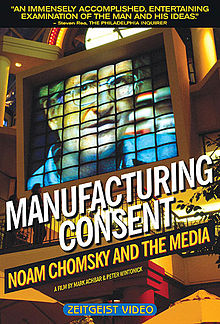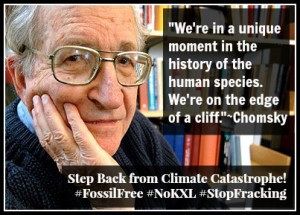Philosopher Slavoj Žižek will deliver the Roger B. Henkle Memorial Lecture at the Brown University Salomon Center for Teaching DeCiccio Auditorium today. In a September 9, 2015 column published in The London Review of Books, he masked a series of relatively conservative positions in his typical confection of psycho-analytic vocabulary and post-Soviet reflections on Marxism. The man who was once called the “Elvis of cultural theory” has some interesting suggestions:
First, in the present moment, Europe must reassert its commitment to provide for the dignified treatment of the refugees… Second, as a necessary consequence of this commitment, Europe should impose clear rules and regulations. Control of the stream of refugees should be enforced through an administrative network encompassing all of the members of the European Union (to prevent local barbarisms like those of the authorities in Hungary or Slovakia). Refugees should be assured of their safety, but it should also be made clear to them that they must accept the destination allocated to them by European authorities, and that they will have to respect the laws and social norms of European states: no tolerance of religious, sexist or ethnic violence; no right to impose on others one’s own religion or way of life; respect for every individual’s freedom to abandon his or her communal customs, etc… Third, a new kind of international military and economic intervention will have to be invented – a kind of intervention that avoids the neocolonial traps of the recent past… Fourth, most important and most difficult of all, there is a need for radical economic change which would abolish the conditions that create refugees… When I was young, such an organised attempt at regulation was called communism. Maybe we should reinvent it. Maybe this is, in the long term, the only solution.
What Žižek fails to understand is this tone may seem unique or even radical in Europe, but the fact is that it is old hat here in America. What he is saying, with some superficial changes, sounds exactly like the type of Gilded Age American populist rhetoric that did pose a challenge to capitalists but failed, in some cases intentionally and some not, to adequately grapple with the challenges of race and racism on both sides of the Mason-Dixon line. 
Populist politicians such as Oklahoma Senator Thomas Gore, grandfather of the late Gore Vidal, put forward a simplistic argument that ending poverty would end racism, which they saw as a case of jealousy and resentment as opposed to a psychological abnormality with genuine neurological symptoms, as was shown by a 2007 article published in the journal Social Cognitive and Affective Neuroscience. Of course, other populists, the Southern Democrats who resented northern manufacturing and industrial concerns for their collaboration with Lincoln, were unapologetic racists who passed as many Jim Crow laws as humanly possible. I think Žižek can be classed in the former group but still is mistaken.
To borrow a phrase used by Žižek, this is symptomatic of a far greater issue, his genre of studies, post-Marxism. Turning to the 2004 graphic novel INTRODUCING MARXISM: A GRAPHIC GUIDE by Rupert Woodfin and Oscar Zarate, we find a section that gives a sufficient explanation of post-Marxism as a field of study. One must be mindful that, as with many classifications, these categorizations are sometimes problematic and that some of the figures mentioned, such as the late Stuart Hall, were genuinely valuable resources for their societies. But at the end of the book, the authors put forward a “10-point criticism of Marxism in our postmodern world” that is profoundly anti-socialist. They write:
1. Socialism does not work and neither does any other grand narrative. The ideologies associated with them are always false.
2. Classes are degenerating and disappearing and attempts to explain things in terms of them are reductionist and wrong. There are many other significant sources of identity and conflict, such as gender, ethnicity, sexual preference.
3. The state as such is always dangerous and cannot deliver effective social welfare; this can only be done by civil society.
4. Any form of central planning is inefficient and tends to corruption; markets are the only mechanism which allows for fair distribution.
5. The old left approach to politics always ends in authoritarian regimes which crush civil society. Politics should exist only at the local level, with local struggles over local issues.
6. Conflicts (antagonisms) are inevitable and while some may be resolved, this merely transforms and clears the ground for further, newer antagonisms. An overview of all conflicts and their eventual resolution is impossible. All we can have are understandings of particular situations at particular moments.
7. This is a good thing, since the resolution of all conflicts would result in a stale, rigid society. An ideal would be a pluralist democracy, providing a stable framework for many local conflicts.
8. Revolutions either cannot happen or end badly. The alternative is democratic transition.
9. Solidarity can exist within and across a range of different groups, it is a humanitarian gesture. A belief in class solidarity as the only valid form of solidarity is harmful to this process.
10. In an interdependent, globalized world, anti-imperialism has had its day. The world is too complex.
Here again we find the Cold War dogmatism, wrapped up in typical philosophical dribble, an argument that replaces revolution with the Alinsky/Obama-style ‘community organizer’ method.
The authors use as an example of the antagonisms in Marx the contradictions between a proletarian environmentalist who comes into conflict with the unionized worker in a polluting industrial mill. Ergo, class solidarity is false. But wait! What about Cuba? After the fall of the Soviet Union, the Cubans got around the collapse of their petroleum import markets by transferring over to a wholly sustainable infrastructure with renewable energy, organic agriculture, and other wholly green and wholly socialist solutions. In the past quarter-century, the once-infamously homophobic regime has softened up, now fully subsidizing gender reassignment surgery and creating a genuine dialogue about LGBTQQI liberation. The authors, fully aware of this, write off Castro as a dictator, as did Žižek in his 2010 LIVING IN THE END TIMES.
If we examine the 2000 POST-MARXISM: AN INTELLECTUAL HISTORY by Stuart Sim, we no mention of the great Marxist thinker W.E.B. Du Bois. The post-Marxist critique is that traditional Marxism failed to account for race, gender, sex, and sexuality. If one subscribes to the mainstream history, this is true. But in Du Bois we find the perfect rebuttal to this claim. He was using the historical materialist dialectic in his work and was in full support of socialism. But he also refused to join the American Communist Party in the Great Depression, when it was at its zenith, because he thought the Stalinist framing of the African American struggle in the south as a national liberation struggle, calling for a separate country to be formed out of the states where the majority of the Africans lived, the so-called ‘black belt’ theory, was untenable. Instead, he supported the integrationist position of the NAACP. In reply, the Communists called the NAACP a class enemy. By 1935, Du Bois had written his BLACK RECONSTRUCTION IN AMERICA, a Marxist history of the post-Civil War period, but still had not joined the CPUSA. With the Molotov-Ribbentrop Pact, the Party would do a classic political back-flip and abandon their radical militancy in opposition to racism, disgusting labor activists like A. Philip Randolph in the process. Du Bois is still a revolutionary and dangerous thinker. One must only investigate the ongoing controversy surrounding the firing of Dr. Anthony Monteiro from Temple to see department chairs trying to sweep Du Boisian Marxism under the rug.
This speaks to the flaw in Žižek’s and post-Marxism’s logic. These thinkers simply have been unable to grasp that there are in fact two Marxisms, the academic method of analysis based on the historical materialist dialectic and a quasi-religious political movement that did the bidding of the Soviet Union regardless of how un-Marxist it could be in action. If one looks at Stalin’s writings on dialectics, we get a profoundly crude philosophical opposites game. Lenin approached this former method with his study of Hegel.
But there is a deeper flaw to be addressed. Returning to the Woodfin and Zarate title, we are treated to the typical Trotskyist historical account of the Russian Revolution and the claim that the original Bolsheviks were indeed democratic. But this is demonstrably untrue. The events in the anarchist-controlled Ukraine under the leadership of Nestor Makhno, the writings of Voline, Alexander Berkman, or Emma Goldman, and revolt of the anarchist sailors at Kronstadt tell the story of the revolution betrayed not by Stalin but Lenin and Trotsky. Lenin knew that the Marxist dialectic dictated that democracy was the ultimate arbitrator in a true socialist order. But, following the thought of Noam Chomsky on this topic, he was unable to sacrifice his right-wing vanguardism that had been rebuked by the mainstream socialists in the Second International, who saw early on this was a recipe not for socialism but naked dictatorship not of the proletariat but the party. He replied to these left critics by calling Makhno an anti-Semitic brigand, dismissing Berkman and Goldman petit bourgeois, and killing the Kronstadt sailors. In 1938, Trotsky engaged in a similar course, writing:
How can the Kronstadt uprising cause such heartburn to Anarchists, Mensheviks, and “liberal” counter-revolutionists, all at the same time? The answer is simple: all these groupings are interested in compromising the only genuinely revolutionary current, which has never repudiated its banner, has not compromised with its enemies, and alone represents the future.
This is a recurring motif of all anti-libertarian socialist logic. Rather than engage anarchism and its founders as equals, they dismiss it as purely juvenile. In turn, anarchists in the academy, such as the excellent anthropologist David Graeber, have tried to stake out a whole new field with anarchism in the academy instead of rightfully asserting the mantle of the actual Marxists who were defeated by right wing opponents pretending to the mantle of historical materialism.
The anarchist Bakunin, who had studied Hegel as well, had been critical of Marx and Engels for their emphasis on parliamentary politics and leadership of the party, a position that Marx and Engels both adjusted in the writings on the Paris Commune, THE CIVIL WAR IN FRANCE, as well as later prefaces added to THE COMMUNIST MANIFESTO. Daniel Guérin, author of the slim yet extremely valuable ANARCHISM: FROM THEORY TO PRACTICE, wrote:
[T]he friction between Bakunin and Marx arose mainly from the sectarian and personal way in which the latter tried to control the International, especially after 1870. There is no doubt that there were wrongs on both sides in this quarrel, in which the stake was the control of the organization and thus of the whole movement of the international working class. Bakunin was not without fault and his case against Marx often lacked fairness and even good faith. What is important for the modern reader, however, is that as early as 1870 Bakunin had the merit of raising the alarm against certain ideas of organization of the working-class movement and of proletarian power which were much later to distort the Russian Revolution. Sometimes unjustly, and sometimes with reason, Bakunin claimed to see in Marxism the embryo of what was to become Leninism and then the malignant growth of Stalinism. Bakunin maliciously attributed to Marx and Engels ideas which these two men never expressed openly, if indeed they harbored them at all… Bakunin translated Marx’s major work, DAS KAPITAL, into Russian, had a lively admiration for his intellectual capacity, fully accepted the materialist conception of history, and appreciated better than anyone Marx’s theoretical contribution to the emancipation of the working class.
Žižek, in turn, has said the following of libertarian socialism:
Žižek: I certainly can understand where the appeal of anarchism lies. Even though I am quite aware of the contradictory and ambiguous nature of Marx’s relationship with anarchism, Marx was right when he drew attention to how anarchists who preach “no state no power” in order to realize their goals usually form their own society which obeys the most authoritarian rules. My first problem with anarchism is always, “Yeah, I agree with your goals, but tell me how you are organized.” For me, the tragedy of anarchism is that you end up having an authoritarian secret society trying to achieve anarchist goals. The second point is that I have problems with how anarchism is appropriate to today’s problems. I think if anything, we need more global organization. I think that the left should disrupt this equation that more global organization means more totalitarian control…
BS: You describe the internal structure of anarchist groups as being authoritarian. Yet, the model popular with younger activists today is explicitly anti-hierarchical and consensus-oriented. Do you think there’s something furtively authoritarian about such apparently freewheeling structures?
Žižek: Absolutely. And I’m not bluffing here; I’m talking from personal experience. Maybe my experience is too narrow, but it’s not limited to some mysterious Balkan region. I have contacts in England, France, Germany, and more — and all the time, beneath the mask of this consensus, there was one person accepted by some unwritten rules as the secret master. The totalitarianism was absolute in the sense that people pretended that they were equal, but they all obeyed him. The catch was that it was prohibited to state clearly that he was the boss. You had to fake some kind of equality. The real state of affairs couldn’t be articulated. Which is why I’m deeply distrustful of this “let’s just coordinate this in an egalitarian fashion.” I’m more of a pessimist. In order to safeguard this equality, you have a more sinister figure of the master, who puts pressure on the others to safeguard the purity of the non-hierarchic principle. This is not just theory. I would be happy to hear of groups that are not caught in this strange dialectic.
Žižek is correct in his statement, there are some anarchist groups that follow the religious Marxism paradigm and behave as cults, positioning themselves as a Protestant alternative to the Leninist orthodoxy. But on the same token, groups like the Industrial Workers of the World and the Spanish CNT-FAI are not interested in this behavior, they instead are continuing to work to form labor unions in unorganized workplaces that carry within them a revolutionary vision of democracy.
Some years ago, Dr. Norman Finkelstein wrote “A rite of passage for apostates peculiar to U.S. political culture is bashing Noam Chomsky.” This is true of Žižek, who has claimed that Chomsky defended the Khmer Rouge, a tired and oft-repeated mischaracterization of statements made regarding the genocide in East Timor so to justify the post-Marxist reliance on obscurantism and polysyllable verbiage while delegitimizing Chomsky’s activism. The reality is that Chomsky, a member of the IWW and long-time advocate of direct democracy, rejects the deification of Marxism but arguably is more of a historical materialist in praxis than Žižek is.
The real challenge for post-Marxism and Žižek is to stop with the mental gymnastics and confused polysyllables to figure out why the USSR failed, historical materialists have been presenting the answer to everyone for almost a century. Instead, the discussion must shift to a critical re-introduction of the Marxist-Lenininist and Trotskyist texts, along with Du Bois, augmented with an understanding that the philosophy did not transfer into praxis. I in fact see a real value to works like STATE AND REVOLUTION or Stalin’s work on the national question. But I also know a real scholar and critic must understand these were deeply flawed men with profound gaps. Is Žižek capable of this?











